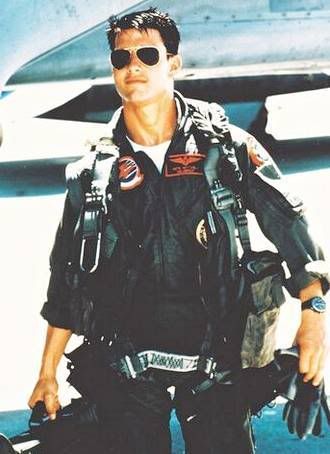
Yesterday as I drove to work, two stories on NPR caught my attention with how completely out of touch the interviewees sounded about their particular fields. These are people who are highly trained, performing what used to be important–if not vital–services, and well rewarded professionally for their accomplishments. And yet, listening to them talk about the importance of preserving the culture, practices, and institutional arrangements that enabled their profession, their claims rang so hollow, so 20th century, that I was struck that they would even say such things on radio.
The culprits? Bankers and Fighter Pilots. The Bankers were all upset about the “strings attached” to the TARP bail-out money they had received. Of particular concern was the limits on executive pay, and how this was going to cause a talent drain in the financial sector. All I could think was how tone-deaf the bankers sounded–while some of these guys may have had talent, it was a talent for destruction, not necessarily talent that you want to keep around. And, have they tried looking for jobs lately? There are quite literally thousands of finance professionals out of work, ready to step in to the jobs these supposed talents are vacating.
The Fighter Pilots were not quite as egregious, but still sounded like relics of a day gone bye. Morning edition has a nice 2 part story (yesterday and today) about fighter pilots and the changing fighter pilot culture. I’m not quite going to give the full Farley here, but listening to these guys, who sound as if they stepped off the set of Top Gun and into the story, you wonder if they are living in a bygone era (yes, I know one is AF and the other USN, but half of the first NPR segment is all about Top Gun, check it out, they even have the great music).
So why is there such an emphasis on training fighter pilots?
“None of us, I think, can really say with certainty who it is that we may end up having to fight next or what their capabilities are or what weapons systems they’ll have,” [Lt. Col. Dan “Digger” Hawkins, the deputy commander at Red Flag] says. “And so that’s why we keep our skills honed with exercises like Red Flag — so that we can be ready to defend the country at a moment’s notice against whoever it is who may try to attack us.”
No one who is currently training at Red Flag has ever been in a dogfight, but the training they receive is what Hawkins calls “very realistic dogfights.”
“As far as actual live combat, I’ll believe that some of the last air-to-air kills that the U.S. Air Force had was in Bosnia back in the 1990s.”
That was before these students were even pilots.
It sounds like such a valiant culture, much like the Pony Express was a valiant way to deliver cross-country mail in its day. For the past SIX years, the US has been engaged in two wars, actual ongoing combat operations, in one case against a real enemy that had actually attacked the United States, and fighter pilots have had no place to operationalize all that wonderful training at Red Flag. Instead, they have been pushed aside by robots. These days, Drones are the US weapon of choice in fighting Al Qaeda:
Pentagon officials say the remotely piloted planes, which can beam back live video for up to 22 hours, have done more than any other weapons system to track down insurgents and save American lives in Iraq and Afghanistan.
The planes have become one of the military’s favorite weapons despite many shortcomings resulting from the rush to get them into the field.
There is a near insatiable demand for more Predators and Reapers, but none of the “pilots” don’t want to actually fly them. Its just not the same–pulling 9Gs vs sitting in a small room playing video games–they say.
Bankers and Fighter Pilots. Heroes of the 80’s and 90’s. Sounding like relics of bygone era. It would be cute, if it wasn’t so darn expensive to maintain the institutions that facilitate their cultures.
Dr. Peter Howard focuses on US foreign policy and international security. He studies how the implementation of foreign policy programs produces rule-based regional security regimes, conducting research in Estonia on NATO Expansion and US Military Exchange programs and South Korea on nuclear negotiations with North Korea.


0 Comments